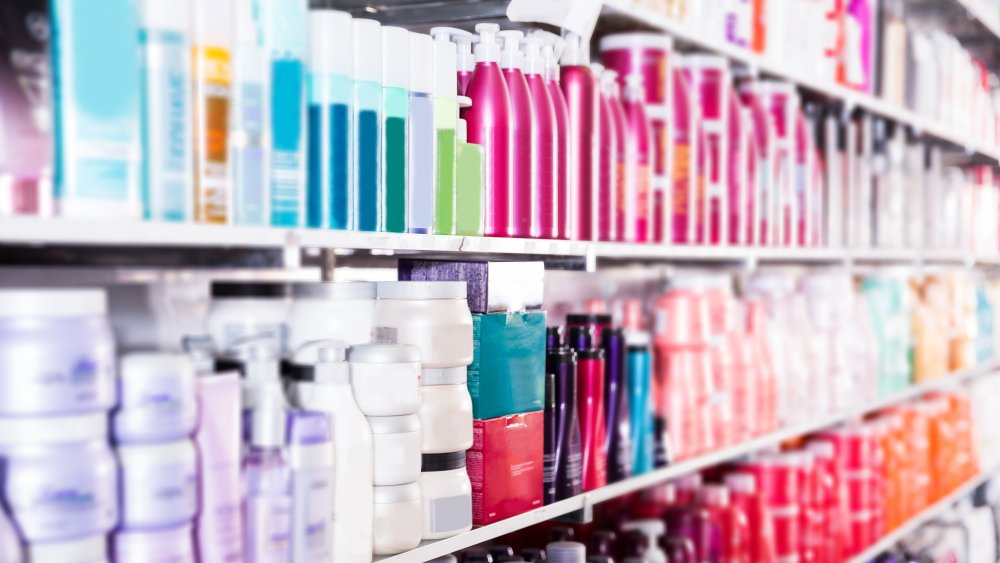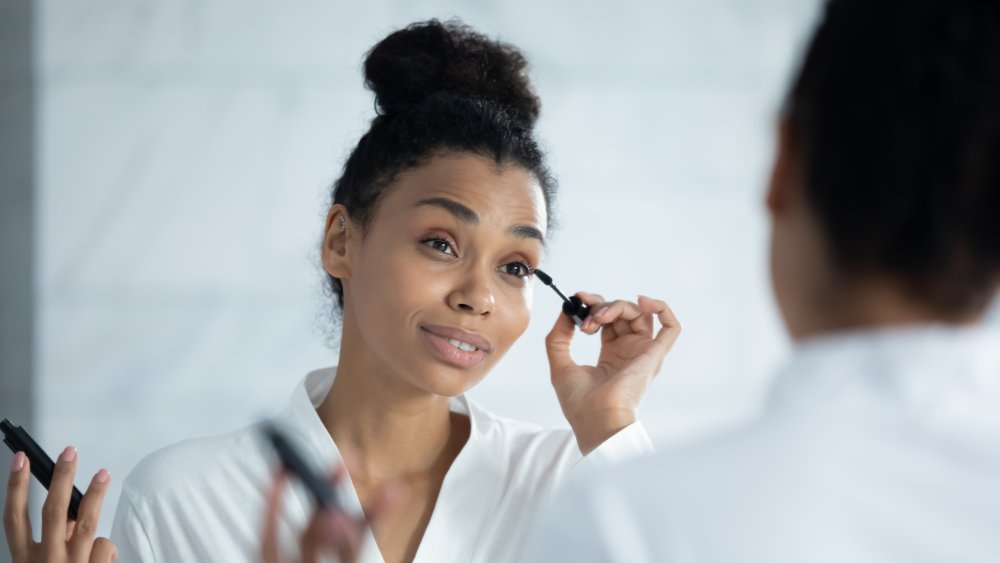Here's What You Should Know About Parabens
If you've looked for a clean beauty product in the last decade, you've likely seen "paraben-free" plastered on labels in big letters. Beyond their role in marketing jargon, parabens come in various forms that many consumers scope out and put on their own personal no-fly list.
Developed in the '50s in response to the increasing demand for personal care products with long shelf lives, parabens work to preserve what's inside the bottle and prevent mold and bacteria growth, as explained by Elle. From shampoo to makeup to shaving cream, paraben usage helps to keep active ingredients stable and products as effective as possible. According to Byrdie, these preservatives come in forms like butylparaben, ethylparaben, methylparaben, and propylparaben.
However, issues started to arise following a 2004 study performed in Britain that found traces of parabens in the breast tissue of 19 out of 20 women who were suffering from breast cancer. The problem lies in the fact that these preservatives mimic a very important hormone — estrogen. Elle reports that this study showed that particles in these preservatives could break through the skin barrier and enter the bloodstream, possibly having damaging consequences.
Parabens may disrupt healthy hormonal functioning
When the body has too much estrogen, it can start to augment breast cell division and thus the growth of tumors, as explained by Elle. Furthermore, as Byrdie reports, this "could potentially lead to reproductive complications and heightened cancer risk in adults as well as developmental issues in children." According to Elle, parabens can even make their way into waterways, with marine mammals showing traces of the preservatives in their systems.
However, the controversy lies in the fact that the studies performed may not have been conclusive enough to determine causation. That's why parabens are still allowed in various cosmetic and personal care formulas. Michelle Scott-Lynch, who founded the paraben-free hair care brand Bouclème, explains to Elle, "It's difficult to say if parabens are categorically 'bad' for us, but there are many other preservatives now available so it's no longer necessary to use them."
As with most personal care choices, the decision is fully up to you. But beware of "paraben-free" marketing tactics, and be sure to check the ingredients before you buy your beauty products.

